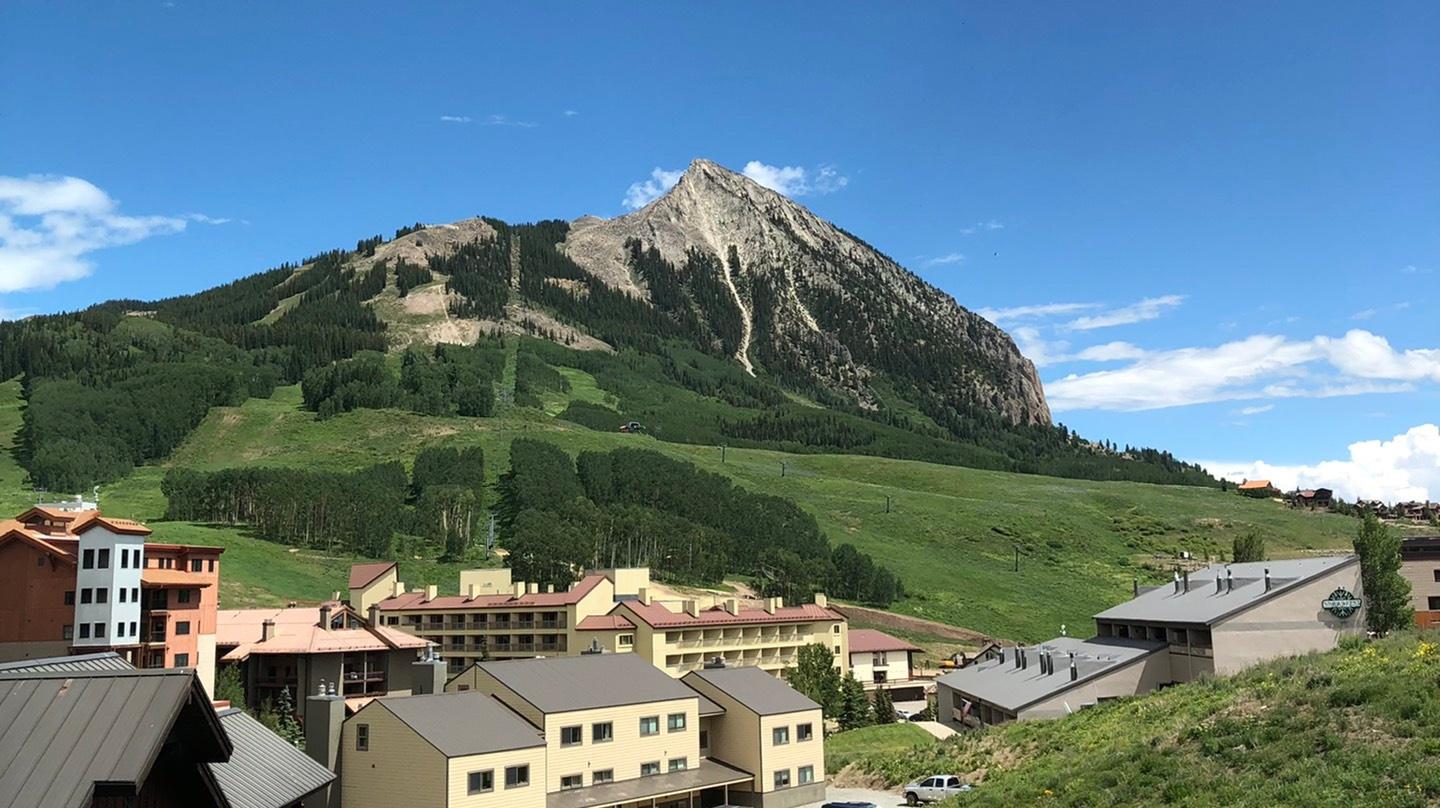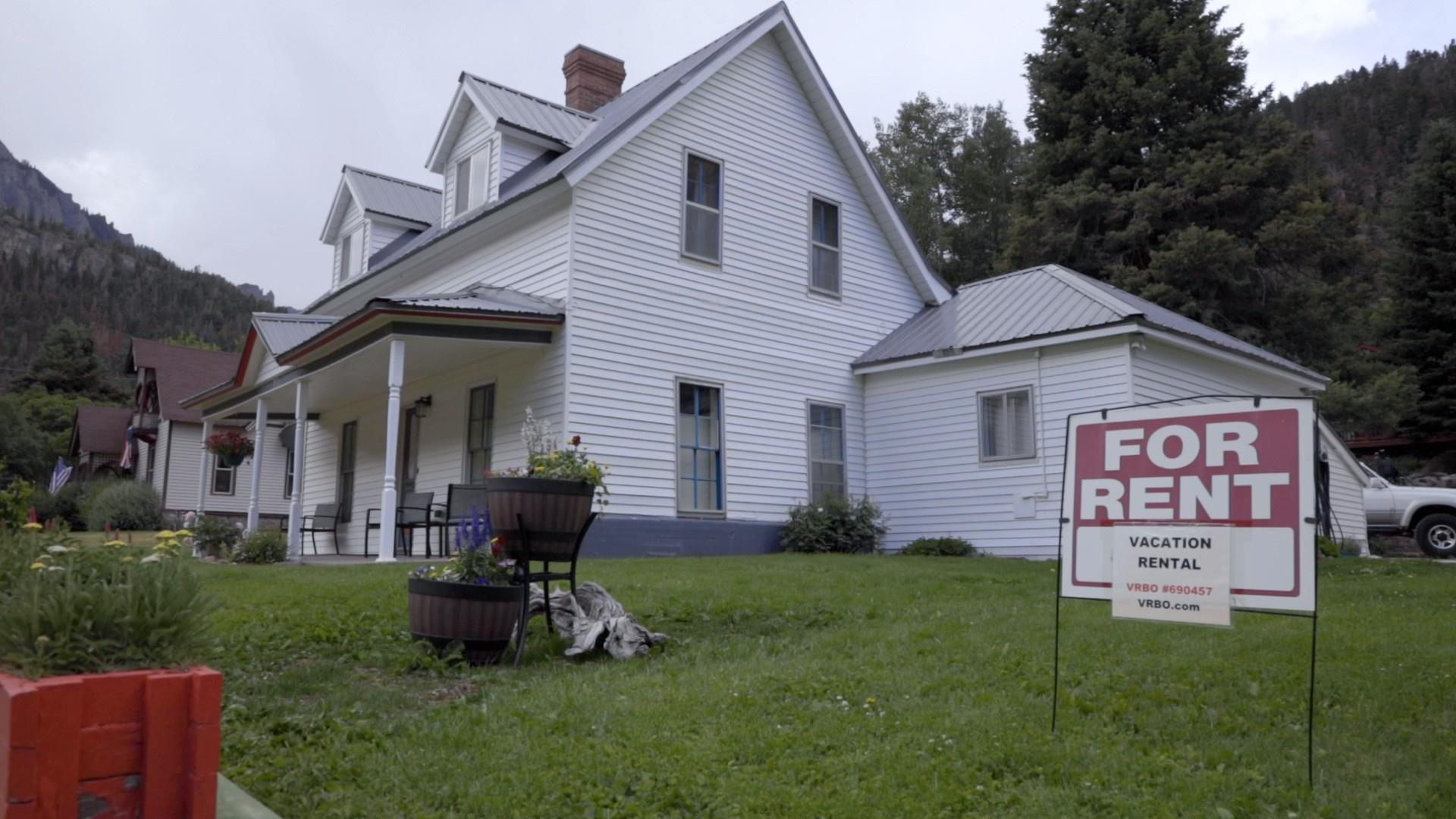OURAY, Colo. — The city of Ouray plans to initiate legal action against seven property owners who have been illegally operating short-term rentals, a process that could result in thousands of dollars in fines and penalties if the property owners are found guilty.
Following a 20-minute executive session in which they received legal advice from City Attorney Carol Viner, city councilors voted unanimously Tuesday night to direct staff to follow the process laid out in an ordinance the council approved in 2019 establishing regulations for short-term rentals.
That ordinance calls for the city’s land-use code to guide the enforcement of short-term rental regulations. Under the code, anyone convicted of violating the land-use code could be fined up to $1,000 each day the violation occurs.
City officials last month sent seven cease-and-desist letters to property owners who have been renting their homes for less than 30 days but never obtained the license or inspection required as part of the short-term rental regulations. Of those seven, six have never paid the required 3.5% tax assessed per night, per room on all lodging businesses in the city, City Administrator Silas Clarke told councilors.
Under Ouray’s municipal code, anyone who fails to pay the lodging tax could be required to pay the tax owed, fined up to $1,000 per day, assessed a 10% penalty on the taxes due and charged 1% interest per month.
Viner is expected to initiate cases against each of the seven property owners in municipal court.
Councilors in June voted to temporarily prohibit those property owners from applying for a short-term rental license while they figured out a more permanent punitive action. In July, they proposed a series of penalties including a $10,000 annual fine, a requirement that illegal rental operators pay lodging taxes dating back to when short-term rental regulations were initially adopted and prohibit them from applying for a license for five years. The council has yet to formally adopt those penalties.
The reality, though, is the sanctions already in place for violating the land-use code and not paying lodging taxes are more severe.
“We have a position in place, a code in place. It’s there for a reason. It’s been there forever,” Mayor Greg Nelson said after the executive session, referring to the land-use code and the penalties associated with violating it. “We need to let our codes work for us instead of against us.”
Several property owners illegally running short-term rentals wrote to the city claiming they had no knowledge of the regulations and were willing to pay the necessary fees and take other corrective measures.
Grand Junction residents Sara and Scott Donaldson told the city they purchased a unit in the Elkhorn Townhomes in 2018 and short-term rent the townhome when they’re not staying in it. In a letter to Community Development Coordinator Lily Oswald, Sara Donaldson wrote she and her husband didn’t know about the short-term rental regulations until they received the cease-and-desist letter.
“I feel like we’re being penalized for something we didn’t know anything about,” Donaldson, who owns Junct’n Square Pizza in Grand Junction according to state business records, told councilors during Tuesday’s meeting.
The city published a summary of the ordinance regulating short-term rentals in the Plaindealer in the summer of 2019. The city’s community development coordinator at the time, Chris Hawkins, mailed notices that fall to property owners notifying them they needed to apply for a license. The Plaindealer has also published numerous articles over the last 2 1/2 years about the regulations.
Mayor Pro Tem John Wood replied “ignorance is not a defense.”
“You’re a property owner in the city of Ouray and you’re doing business,” he told Donaldson. “You should be staying up to speed annually on what may or may not have changed regarding that operation. This isn’t something that snuck up in the last six months.”
The city received two other letters from property owners who claimed they were in the dark about the license requirements.
Durango resident John Cartier, who said he has owned a house at 727 Fourth St. since 1979 and marketed it as the Cartier Victorian House to short-term summer renters since 1997, said he didn’t learn about the regulations until January. He claimed he’s paid all state and county sales taxes and city lodging taxes since 1997.
“I am sorry for the oversight that has occurred and am happy to correct any outstanding issues,” he wrote. “I am retired and the income I gain from my house in Ouray is very important to me.”
Berthoud resident Chris Schmidt told city officials in an email he has rented his townhome at 1919 Main St. to long- and short-term renters since 2019. He said since he learned about the regulations he has removed his listing from Airbnb and contacted the city for an inspection. He said he’d be willing to pay the required $500 application fee dating back to 2019 and “would be amenable” if the city feels a steeper penalty should be assessed.
“I love Ouray and I would never sidestep or short change the City of its rightful dues,” he wrote.
Council ditches accessory dwelling unit regulations
After spending nearly two years trying to come up with new rules aimed at creating more workforce housing, councilors ditched nearly all of the proposed changes to the land-use code, concluding they won’t result in more affordable housing options.
Councilors, planning commissioners and city staff have been kicking around various proposals to amend the land-use code with the intention of incentivizing the creation of accessory dwelling units — smaller secondary units like mother-in-law or garage apartments attached to or separate from the primary home.
The council had tentatively agreed on several provisions, including a requirement that the unit be leased for a minimum of 90 days, that renters work at least 30 hours a week in Ouray County, that people who work remotely for a company not located in the county wouldn’t be eligible to rent an accessory unit, and that the unit would be deed restricted for 50 years. On Tuesday, though, councilors decided against nearly all the changes, concluding no one has taken advantage of the current rules already in place that permit accessory units and that waiving building permit and inspection fees wouldn’t help.
“I don’t think there’s enough of a carrot here,” Funk said.
The only change councilors agreed to is to increase the maximum square footage of an accessory unit from 1,000 square feet to 1,200 square feet.
Reversing course on mobile app
Two months after rejecting a recommendation from the Tourism Advisory Committee to hire a company to develop a mobile application intended for tourists in favor of developing its own app, councilors are ready to make a 180-degree turn.
The council is expected to vote at its Sept. 27 meeting to reapproach a company called Build-Fire, which had offered to build the app for a $15,000 setup fee and a $5,088 annual subscription fee. The about-face comes after the city issued a request for bids to develop what’s known as a progressive web application that would work on any web browser and not require users to download an app.
But the city received only one reply from a North Carolina-based company, Rapidops, Inc., which offered to perform the work for $112,320.
Nelson and Wood, who voted in July against pursuing the progressive web app, pushed to go back to BuildFire and see if they would stick to their original offer of $15,000.
“We’ve already wasted over two months. We could have had it done by now,” Nelson said.
Councilor Ethan Funk, who was the primary proponent of pursuing a progressive web app, said he preferred the city spend the money on kiosks and signage to help direct tourists.
“I question whether this is the image that we want to put out there,” he said. “We want to get people out of their phones and make Ouray a different place than the world they came from.”



.jpg)

